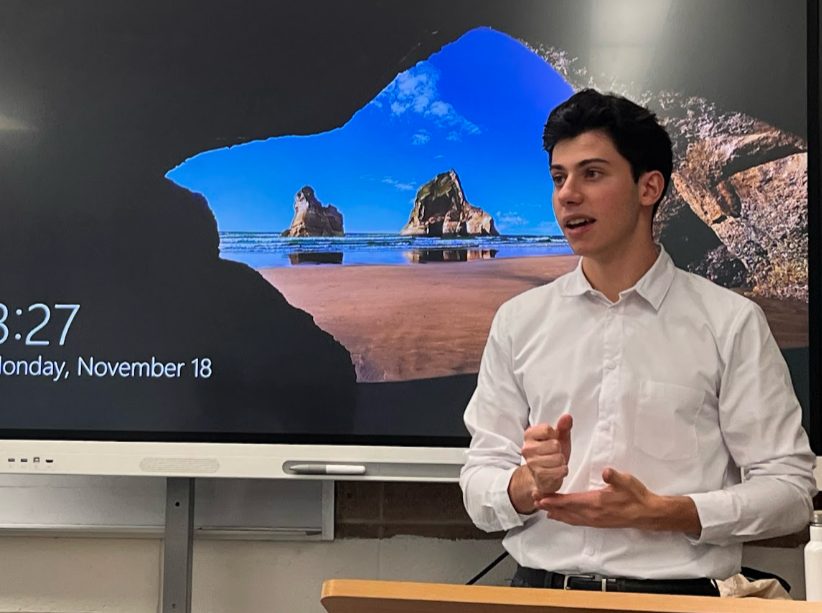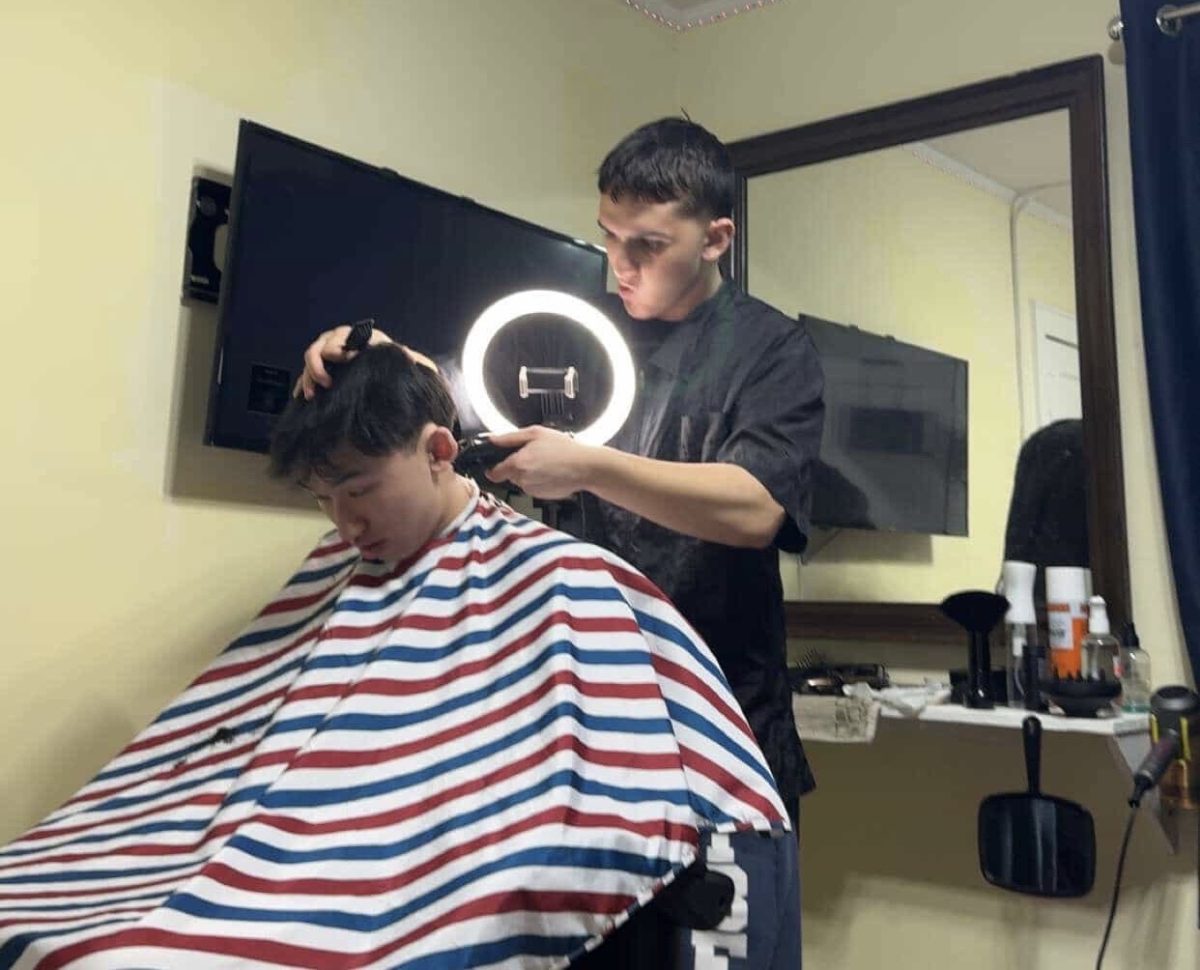On May 28th, 2024, Model Congress exploded into pandemonium. William Tsang, the two-term president, was soundly defeated by a coalition led by Yilin Qiao and David Levy. But this massive upset was only the beginning of a fundamental restructuring of the club, for better or worse.
Model Congress, a growing club in Great Neck South, encountered a problem last year. The club’s weekly meetings were becoming increasingly dominated by a few key speakers, many of them making joke speeches about topics as important as the 1964 Civil Rights Bill. William Tsang, the president and chairperson at the time, fought fire with fire. The banging of the gavel rang through the classroom for minutes on end. Speeches were uncritically rejected time and time again. Yet, the joke speeches continued.
Speeches form the bedrock of Model Congress. They are the sole official way a member can change others’ minds. Model Congress is all about bills. If a member wants a bill enacted, they might speak in favor of it; if against, they speak against. At the end of the meeting, the bill is voted on, and if a majority of people vote for it, it passes. This is the problem with joke speeches. They don’t argue for either position; they don’t pick a side. They undermine the base assumption of the club, that these bills will become real-world laws and impact real people. When someone argues then that RFK Jr.’s brain worm will establish total control of the Department of Health, it’s difficult to reestablish a seriousness of purpose. Without that, Model Congress becomes little more than a glorified improv class.
Two approaches to deal with this problem were put forth in anticipation of the election. On one hand, Tsang’s: the absolute rejection of change, the maintenance of his position as Chairperson and President, and the potential expulsion of those who disrupted the order too many times.. On the other hand, Qiao and Levy’s: the establishment of a rotating Chairperson and the creation of separate committees (Research Committee, Media Committee, and Finance Committee). They established organizations that didn’t have board members on them, serving as a step between a non-contributing member and a totally committed Board Member. Their populist, inclusionary campaign won overwhelmingly. David Levy, one of the current Co-Presidents, commented, “We saw our predecessor, William, as a good leader, but one who was often a little too rigid.(…) We wanted some level of disagreement and discourse in every part of the club.”
However, one issue that faced the new administration as a result of increased participation and protection of freedom of speech was managing where the line would be drawn between what was acceptable to say and what wasn’t. “Once you make it clear that the opinions of everyone are appreciated, there becomes this balancing act of where we put the line. Where must we be rigid? Where must we tell people: no, it isn’t your place to say this,” Levy said.
Although there is still internal debate over this principle, people have delivered fewer joke speeches under the new administration. Qiao ascribed this to, ultimately, the good faith Model Congress members have in their arguments. “When people are fun, they’re much more amenable towards being courteous in our discussion. We haven’t had to reprimand people nearly as much because they like giving serious speeches and engaging in political discussion. We don’t have to force them into it, making it easier on them and us.”
One distinct and clear change happening in the club is the shift of power away from the President (now co-presidents) and towards the whole club, the board members and committee members. Before the administration swap, the board members weren’t completely invested in the club’s future, as most of them were seniors. In fact, Yilin was the only member who remained on the board following the election. “Even if I think the discussion should be that one way, or David wants the discussion to be one way, we all decided that we have to dedicate ourselves towards preserving an unbiased space,” Qiao said.
The rotating chairperson was a wholly new invention. In principle, this idea would completely undermine established club doctrine and lead to each meeting devolving into chaos. Instead, this practice has transformed the chairperson position from one only occupied by the sitting president to a seat that allows any member, no matter their position, the power to moderate a meeting. How it functions is simple: with every new bill presented, a new chairperson will volunteer themselves. According to Levy, “There is now a level of surprise, a level of uniqueness to every single meeting. It makes people adapt to more than one system.”
Ultimately, Model Congress has changed dramatically since the new leadership and administration have taken office. The future of this preeminent club is unclear, but things seem to be getting better. The vision the new leadership is pursuing appears to be an achievable one. That position is clear. In Levy’s words, “There’s always more points to be considered. There’s always things that others think that you have not thoroughly reconsidered. There’s always nuance that might force you to reevaluate your position.”







